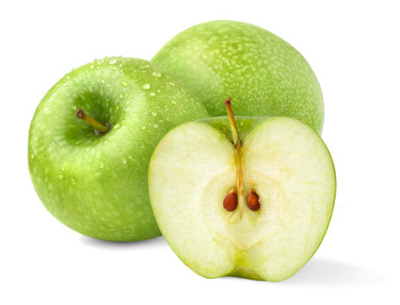Stress Eating: Alternatives to Eating for Comfort in Times of Stress
Stress Eating: Alternatives to Eating for Comfort in Times of Stress

If you consider how often and how automatically we rely on food to manage our anxiety, medicate our feelings and manipulate our moods, the link between stress and food is undeniable. In a time of stress, most people are more likely to turn to a snack than a pal. But food is our fuel, not our friend.
Yet we've grown up in a culture in which food has become much more than a source of fuel. It symbolizes a spectrum of human needs and wants, including comfort, companionship, reward, punishment, escape, control and power.
As infants, our caretakers popped a bottle into our mouths to relax and quiet us. As kids, cookies and candy became rewards for good behavior or a fine report card. You may remember being bribed with food, like the fellow who recalls that twice a year, his payoff for enduring his dental checkups without resistance was--go figure--candy!
Food--and the withholding of it--has long been used to control children's behavior. Remember the threat of all threats: being sent to bed with no supper? And how many times was dessert the reward for eating all your dinner, even if it meant cramming down more food than you were even hungry for?
So it is any wonder that stress and food rank right up there with Mickey and Minnie Mouse among the world's most enduring combinations? When you look at how our culture has conditioned us to think about and use food, it should come as no surprise that so many of us have grown up relying on it to cope with the stress and anxiety of our everyday lives.
Because emotional eating is such a big factor in the development of obesity, in the next couple columns, we're going to take a closer look at stress, identifying the sources of it and managing the effects of it.
But just to hit the ground running, begin thinking about the things you do to manage your stress when you can't have that snack you're prone to grab. Some might not be any better for you than the snack reaction.
But there are much healthier ways of handling momentary periods of pressure, ways that can free us from our reliance on food as comfort, and actually come in handy when we're stressed out and it's just not convenient to have a hot fudge sundae.
Two that we are big advocates for are massage and focused relaxation. Now, if you were in the middle of some work-related pressure, you'd probably be thinking, "Who's got time for a massage? Give me the corn chips!" But both these stress tools can be fairly quick mechanisms. We're talking about self-massage here, and simple meditation techniques that don't require any more than a few minutes.
Sticking your neck out
When you're stressed out, where do you typically feel the tension first? For most of us, stiffness and tenderness in the neck and shoulders are immediate clues to stress. Rather than medicate or mask the tension by crunching potato chips or munching brownies, try a more active, hands-on approach.
First, reach up with both hands to the base of your skull, with one hand under each ear. Feel the muscles and the bones. Press firmly against the bone with some pressure. If you do this correctly, at first it will feel uncomfortable. Then move your hands back and forth in short, lateral movements down the muscles of your neck so that you cover the entire width and length of the muscle. If it feels uncomfortable, remind yourself that the relief will last longer than the discomfort.
-
Five (5) Reasons To Reach For A Green Smoothie To Fast Track Your Health
Not everyone would salivate at the idea of a green smoothie. If you
-
An Overview of The South Beach Diet
The South Beach weight loss plan started
-
How to Choose the Best Chocolates at the Store
We have seen that cocoa is high in antioxidants and contains import
-
Beginning an Exercise Routine with Diabetes
Diabetes management has a lot of layers, and it can be overwhelming
-
Obesity Prevention - Significant Facts You Ought to Know
Obesity is one of the leading causes of
-
The Truth About Using A Quick Diet For Weight Loss
Finding the right quick diet for weight
- DON'T MISS
- Five Common Foods That Are Ruining Your Waistline
- How to Get Rid of Neck Fat
- Life After Weight Loss Surgery - Don't Let Shame and Self-blame Weigh You Down
- Worrying Can Cause You Trouble
- The Resistance Against the HCG Diet
- Expert Tips To Better Weight Loss Success
- How To Lose Weight Without Obsessing Over The Scale
- Are You Ready To Lose Weight
- Why Health Coaching Works When Jenny Craig Doesn’t
- Best Weight Loss Foods: 50 Delicious Foods That Help You Lose Weight




